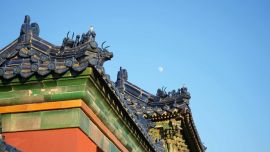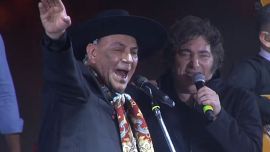Argentina will make a US$1.8-billion payment to the International Monetary Fund (IMF) on December 18, while talks with the multilateral lender over a new financing programme continue.
"Yes, our idea is to make the payment," said Cecilia Todesca, secretary for international economic relations, at a press conference on Tuesday, following a meeting of the Economic Cabinet headed by President Alberto Fernández.
The government wants to close a new agreement with the IMF regarding the record US$57-billion loan granted to the Mauricio Macri government (2015-19), of which Argentina has received US$44 billion. Fernández rejected the remaining tranches after taking office in December 2019.
Under the current terms of the agreement, Argentina is obliged to make payments on the principal in 2022 and 2023, with more than US$19 billion due each year.
The government intends to include the outlines of any new agreement with the IMF in a multi-year economic plan that Fernández promised to send to Congress this month
"The plan is being worked on and it is being worked on with the IMF. We would like to reach the best possible agreement in the shortest possible time. It is a major negotiation and when we have everything ready we will send it [to Congress] as the president has said," said Todesca. "We do not have a precise date."
The official said that according to projections, Argentina's economy is "in strong recovery," after falling into recession in 2018 and experiencing a 9.9 percent collapse in GDP in 2020 amid the Covid-19 pandemic.
"We are already at around 10 percent GDP growth this year. This is a very relevant figure because we are coming from three consecutive years of decline. And we are already 2.6 percent above the September 2018's data," she said.
Todesca also commented on recent controversy regarding new measures taken by the Central Bank, specifically the elimination of quotas for credit cards purchases in dollars for air tickets and tourist services abroad.
The measure, announced last week, affects a minority sector in a country with a 40.6 percent poverty rate and one of the highest inflation rates in the world – 41.8 percent from January to October this year and more than 50 percent over the last 12 months.
"There is no kind of ban, what there is is no subsidy," said Todesca.
"We cannot subsidise trips [abroad] in fixed quotas in pesos because we would be giving a subsidy to a population that does not require it," she argued.
The official explained that "we take care of the [Central Bank's] reserves in order to have the dollars to continue growing."
The bank sold around US$135 million on Tuesday in the exchange markets to compensate for financial turbulence. The institution's reserves fell by US$489 million overall, closing at US$41.549 million.
The Central Bank attributed the drop to withdrawals by banks, sales in the exchange market and drops in the price of gold and currencies.
The government is anticipating a boost foreign currency from the agricultural sector during December, due to the sale of wheat crops.
Illustrating the tension in the markets, Argentina's rate climbed to 1,905 points on JPMorgan's country risk index – a new record since September 2020.
– TIMES/AFP






















Comments